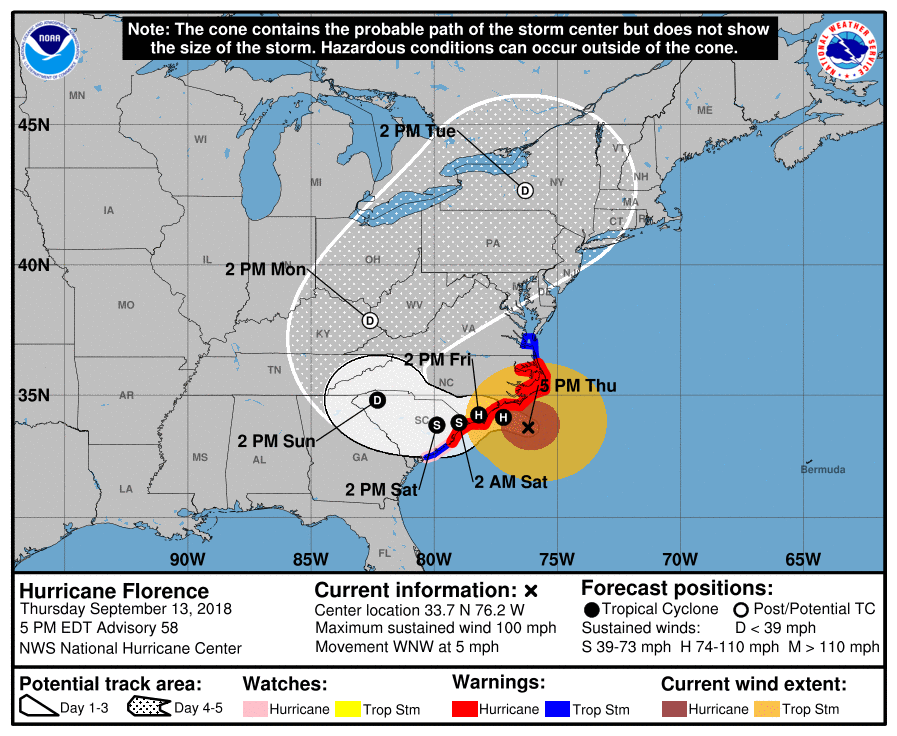SC agriculture commissioner: Trump's trade war makes hurricane costs even worse
As the Carolina coasts brace for Hurricane Florence, local farmers reeling from U.S.-China trade war tariffs are bracing for more pain from wind and rain.
“We estimate the impact of tariffs on our markets to date is at $70 million,” Hugh Weathers, South Carolina’s commissioner of agriculture and a fourth-generation farmer, said on Yahoo Finance’s Midday Movers. “Do we add the loss that may come from the hurricane on top of that? Really, they’ll kind of coincide.”
Florence, a Category 2 storm, is expected to make landfall Thursday night, bringing what meteorologists are calling catastrophic rain and historic floods to the region.

That downpour will negatively affect the harvest season.
“When there is the rainfall that we’re expecting that impacts [getting into the fields], then harvest just is delayed … whether it’s cotton, or whether it’s peanuts or soybeans,” he said.
‘This down cycle is only made worse by these tariff discussions’
Weathers called agriculture a “cyclical industry,” meaning that the farmers are used to dealing with the uncertainty. And recent storms, with tariffs tossed on top, have created an especially weak moment for the industry.
South Carolina farmers were hit with historic flooding in 2015 that led to a loss of $300 million in crop revenue and in 2016, Hurricane Matthew caused $50 million of damage.
Overall, “U.S. farm net income in the last three years has decreased to an amount that was half of what it was in 2013,” Weathers said. “So the cycle that agriculture’s going through has only been exacerbated.
“This down cycle is only made worse by these tariff discussions.”

‘Our farmers are very resilient’
Weathers said it’s not all bad news. The commissioner said he’s “very happy with the announcement” made Thursday speculating another round of aid to be given to farmers in December.
“Our farmers are very resilient,” Weathers said. “We’re going to just prepare for the worst and pray for the best.”
Read more: American farmer: ‘We would be much better off’ without Trump’s trade war
